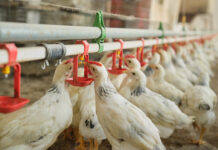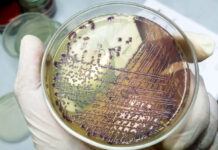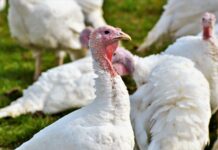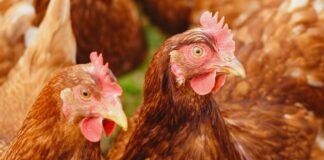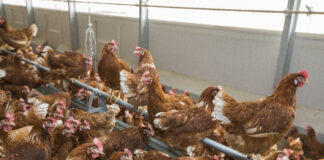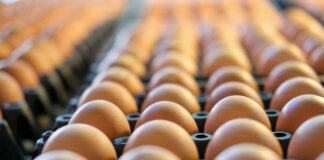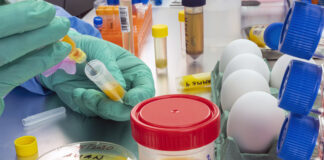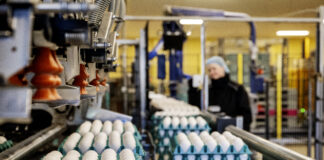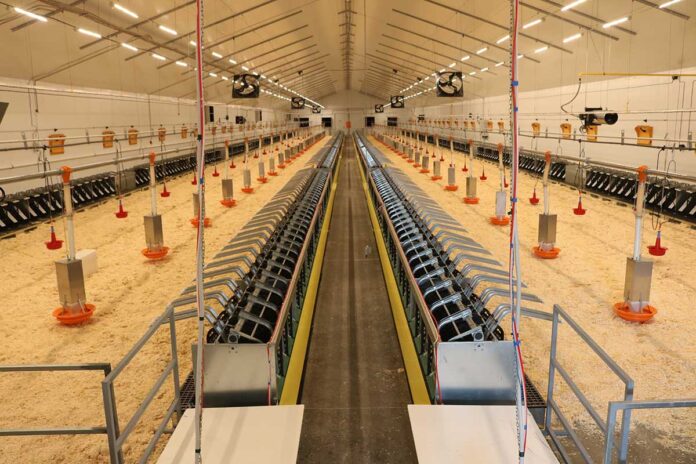
The Russian turkey market has shown substantial growth during the last decade with new and very large companies willing and able to invest considerable sums in growing and processing turkeys as well as marketing turkey meat and turkey meat products. These companies usually run their own hatcheries very successfully. Nevertheless, they mostly depend on imported eggs from various suppliers in Europe and North America.
Introduction
Aviagen Turkeys Ltd (ATL) decided several years ago to invest in a new turkey parent stock operation in Russia. Along with ATL using their own team of technical specialists ATL also hired consultancy services from Moorgut Kartzfehn (MK). With over 60 years of experience in the turkey breeding business, Moorgut Kartzfehn supported the entire project from choosing sites through to fixing the final screw. This included all aspects of construction, design and advice on management issues such as maintenance and service, preparing schedules for egg production and feed supply etc.
The aim of the project was the development of 5 paired rearing and laying farms for turkey hatching egg production. Each farm within the pair was required to be a minimum of 2 kms apart. The first stage was to produce an annual capacity of 8 m hatching eggs, in the second stage the capacity will increase to 11 m hatching eggs starting from 2021. The main focus was to build state of the art farms with maximum biosecurity, from both internal and external aspects.
Land identification
The first visit of the project team to the potential region took place in March 2017. Different sites in various areas of the Penza region (750 kms South of Moscow), in close proximity to power lines and pipelines for natural gas have been presented to the project team by official representatives from the region and from the construction company. The Governor of the Penza region also welcomed the project team in his region and promised his support for the turkey parent stock operation.
One of the biggest opportunities of this remote location is the absence of other livestock, which is connected with no transportation of feed, manure and animals. The region is sparsely populated with only few small villages which means very few backyard fowl.
This also made distances of more than 2 km between laying and rearing farms within a pair and more than 3 km between farms and villages possible. Thousands of hectares of agricultural land are unused and this lack of feeding alternatives especially in combination with the absence of big lakes, rivers or ponds makes the area unattractive to migratory birds. Large pieces of land are available at low cost. The area provides an excellent quality of air and ground water due to the absence of industrial complexes.
On the other hand the remoteness of the area and the absence of agricultural companies made it impossible to establish cooperation for carrying out tasks during service period like mucking out, transporting and spraying the manure etc.
All agricultural equipment like lorries, tractors, manure sprayers or skips for manure need to be owned and operated by ATR.
Farm construction
By April 2017 10 sites were identified. The work on the project started with different steps. The project team identified the optimum layout of the farms which is based on Kartzfehn’s internal project the “Ideal Turkey Parent Stock Farm” with a few adjustments to regional particularities. Detailed technical drawings were made and the decision for the five most suitable farm locations out of numerous different options was made. The intensive cooperation with the construction company started with regular meetings, either in person on the sites, in the office or by conference calls and video conferences. Different possible suppliers of farm equipment were contacted, their technical solutions for the farms were compared and a decision for one supplier was made.
Following the founding of Aviagen Turkeys Russia (ATR), a construction company was appointed in November 2017. The first objective was to prepare the documentation to submit to the authorities for approval of building farms and accessing water.

The next steps were to identify and choose the sites for manure storage, land for spraying manure after storage and the location for the installation of the central incineration.
The construction work started in May 2018 with first excavation works for the foundations and the waste water tanks. In the beginning the works were carried out at an insufficient speed due to a shortage of work forces on the sites. In July 2018 the number of construction workers exceeded 50 on 4 construction sites. The number of workers increased as the project progressed, peaking at over 340 workers in the Autumn of 2019. Over 40 pieces of heavy machinery like trucks, cranes or excavators were used.
The construction company was very experienced in constructing commercial turkey grow-out houses, having constructed more than 400 houses recently. All constructive details had to be double checked because numerous things needed to be done in a different, more sophisticated way with more attention to the details and sometimes different solutions in the construction of a state-of-the-art turkey parent stock farm.
The first four rearing farms were finished on time. It was very difficult to find a subcontractor for building the fifth rearing farm so we had to change the schedule for placing the following flocks from 6 weeks to 8 weeks and increase the number of poults to maximum capacity of the farms to compensate the changes in the egg production schedule.
The first of the laying farms was finished long before the first breeders needed to be transferred to the farm so the planned ‘Opening Day’ with the governor Mr Ivan Beloserzev, EW shareholder Mr Dirk Wesjohann, representatives from the government, the construction company Ruskontraktor, suppliers like MGH and Big Dutchman and Aviagen Turkeys and guests from partner companies and customers took place on the 25th September 2019.
The breeders were transferred middle of October and egg production started in November 2019. The finalization of the next two laying farms was also a very tight race but it has been managed to finish all farms just in time for the sufficient cleaning and disinfection procedures.
Today three laying farms are already producing top quality hatching eggs for the Russian market and the fourth will start in April this year. Sites for further expansion in this area have been identified.
Utilities
The availability of gas and electricity was limited to only a small number of possible spots for the farms but the government subsidised the construction of power lines and gas pipelines to the sites. The feed mill used at the moment with free capacity to produce pelleted parent stock feed and with required biosecurity standards is 650 km away.
The quality of the roads turned out to be critical in some of the sites. Roads with no limit to axle weight for trucks and a promising looking asphalt surface turned into dirt tracks with limited axle weight within only a few months of transportation of construction materials to the sites. Furthermore winter road repairs also seem not to be top priority.
Farm Staff
ATR will employee 118 people when fully operational, currently at 80 employees. ATL have 4 technical persons there all the time training the staff, and this will continue for at least another 6 months.
In September 2018 a group of nine newly hired employees at Aviagen Turkeys Russia were invited to Germany for intensive 4-week training on Kartzfehn’s parent stock farms with ATL technical team to receive a comprehensive insight into all activities on the farms, including service and maintenance and preparation work. Other groups went on training camps in UK and Italy.
Although the unemployment rate in the area is quite high, it has been difficult to find staff willing to do the work on a farm. Minibuses had to be purchased to take all staff to work.
The countryside is not overly attractive to management staff. The next big city, Penza, the capital of the region, with theaters, cinemas, shopping opportunities and a wide variety of restaurants is 120 km away.
Farm equipment
During farm construction the supply of natural gas and the ability to run the gas heaters was the key issue to concreting inside the houses even during winter time without a loss of quality of the finished concrete floors. The farms were constructed throughout the year even in the winter months where temperatures averaged -15 °C during the day.
Installation of the equipment was very well planned and carried out with only minor delays. The first rearing farm was finished at the end of February 2019 and the first poults placed on March 22nd 2019 (Figure 2).

Initially the layout of the laying farms was made for manual nests but during the project automatic nests were reconsidered and eventually it was decided to choose automatic nests.
Conclusion
Besides all the challenges the region is extremely suitable for turkey parent stock production in the actual size and is also very suitable for further expansion. This investment helps to satisfy the increasing need of Turkey hatching eggs in the very fast growing Russian turkey market.


